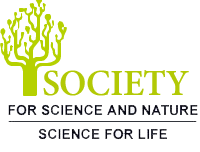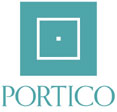- Manuscript Processing
- Upon initial submission of the manuscript, the author will be acknowledged of the receipt via e-mail. Initially an article will be reviewed by one member of the Editorial team to judge the quality of the paper. Articles written in poor English language or not conforming to Biosc.Biotech.Res.Comm guidelines will either be rejected or returned to the authors to rectify the shortcomings. Manuscripts deemed proper are then forwarded to at least two subject experts to provide their unbiased input.Articles submitted to Biosc Biotech Res Comm are evaluated according to their intellectual merit, without regard to the race, gender, sexual orientation, religious beliefs, ethnic origin, citizenship, political philosophy, or institutional affiliation of the author (s).Editorial decisions on manuscripts submitted to our journals are based on independent, anonymized peer review reports. The journal is committed to an editorial process that is not compromised by financial or political influence, thereby actively seeking and encouraging submissions from underrepresented segments of the global scholarly communication ecosystem.
Incomplete studies and manuscripts not in strict compliance with the journals policies will be strongly discouraged and rejected. Each type of article has a special format and should comply with the updated Biosc Biotech Res Comm Instructions for authors / submission check List, published in its issues. All articles in Biosc Biotech Res Comm are published under a Creative Commons License, International Attribution 4.0 BY-CC, meaning thereby a free unlimited use of the articles for academic purposes without any embargo.
We are particular in demonstrating conformance with established industry guidelines and best practices promoted by professional scholarly and academic quality publishing organizations such as: Committee on Publication Ethics (COPE) and Principles of Transparency and Best Practice in Scholarly Publishing.
Acceptable manuscripts will be checked for data analysis and verification of references before the author will be notified about the status of the paper with any suggestions for modifications. Finally accepted articles will be forwarded to the printer for typeset and formatting, etc. and the proof will be sent to the authors for proof reading, before publication, to be obtained in a time bound frame..
2. Peer Review Policy
Unbiased, independent, critical assessment is an intrinsic part of all scholarly work, including the scientific process. Peer review is the critical assessment of manuscripts submitted to journals by experts who are not part of the editorial staff, and is, therefore, an important extension of the scientific process. Each article submitted to Biosc. Biotech. Res. Comm for publication is reviewed by at least two specialist reviewers of the concerned area. The dual anonymized review process is strictly followed and in certain controversial cases, the opinion of a 3rd reviewer can also be sought.
3. Conflict of Interest
For Authors:
All manuscripts for articles, including the original research data based articles, reviews, editorials, perspectives, comments and letters that are submitted to Biosc. Biotech.Res.Comm. must be accompanied by a conflict of interest disclosure statement or a declaration by the authors that they do not have any conflicts of interest to declare. All articles that are published in the journal must be accompanied by this conflict of interest disclosure statement or a statement that the authors have replied that they have no conflicts of interest to declare.
To facilitate this policy, all authors must privately disclose ‘ALL their potential conflicts of interest’ to the editor of Biosc. Biotech.Res.Comm. at the time of submission. Authors should also disclose any conflict of interest that may have influenced either the conduct or the presentation of the research to the editors, including but not limited to close relationships with those who might be helped or hurt by the publication, academic interests and rivalries, and any personal, religious or political convictions relevant to the topic at hand.
Type of Declaration
If you are submitting your article to Biosc. Biotech.Res.Comm. make a ‘Declaration of Conflicting Interests’, please include such a declaration at the end of your manuscript, following any acknowledgments and prior to the references, under the heading ‘Conflict of Interest Statement’.
If no declaration is made, the following will be printed under this heading in your article: ‘None
Declared’. Alternatively, you may wish to state that ‘The author(s) declare(s) that there is no conflict of interest’.
4. Plagiarism
According to Oxford University Dictionary, plagiarism is defined as using some ones else’s ideas, words, data, or other material produced by them without acknowledgement. It is the unauthorized use or close imitation of the language and thoughts of another author and representing them as one’s own original work and Biosc Biotech Res Comm condemns all forms of plagiarism, following a very strict and vigilant policy of removing this malady. Within the academia, it is considered dishonesty or fraud and offenders are subject to academic censure.
Plagiarism can be unintentional or intentional, reproducing academic material without appropriate credit to the original authors (Citations / References). Similarly self -plagiarism is the re-use of significant, identical or near identical portions of one’s own work without citing the original work. This is also known as recycling fraud. Worst form of plagiarism is to steal the whole article from some journal and publish it under one’s own name in another journal.
Plagiarism, fabrication, unethical or redundant publication grossly violates the editorial policies of Biosc Biotech Res Comm. which follows best practice guidelines given by the International Committee of Medical Journal Editors (ICMJE) and Committee on Publication Ethics (COPE), as mentioned in the Instructions for Authors of Biosc Biotech Res Comm.
All authors submitting their MS to Biosc Biotech Res Comm must complete and sign the ethical statement form and append the Plagiarism Check Certificate of their MS along with copy-right form (www.bbrc.in) failing which, their MS will not be processed further.
The Editorial Committee of Biosc Biotech Res Comm will take appropriate action against any author found to be guilty of intentional plagiarism or exceeding the standard limits of plagiarism / similarity levels of the text matter in their MS. The name of author(s) committing plagiarism or using similar text without appropriate citations will also be disseminated to concerned authorities.
We do not tolerate plagiarism in any of our publications, and we reserve the right to check all submissions through appropriate plagiarism checking tools. Submissions containing suspected plagiarism, in whole or part, will be rejected. If plagiarism is discovered post publication, we will follow our guidance outlined in the Retractions, Corrections and Expressions of Concern section of these guidelines. We expect our readers, reviewers and editors to raise any suspicions of plagiarism, either by contacting the relevant editor or by emailing at editor@bbrc.in.
5. Ethical Issues
Clinical trials and studies conducted in animals (or not) must have been approved by an Institutional Review Committee (IRC). In the absence of such a formal ethics review committee, the Helsinki Declaration of 1975, as revised in 2000 and/or the Guide for the Care and Use of Laboratory Animals, as adopted and promulgated by the United States National Institutes of Health or Indian Council of Medical Research (ICMR) India must be followed. If doubt exists whether the research was conducted in accordance with the Helsinki Declaration, the authors must explain the rationale for their approach, and demonstrate that the institutional review body explicitly approved the doubtful aspects of the study. In case of any study involving clinical trial, taking of informed consent of patients is mandatory.
- On Ethical Issues:
Animal and Human Studies
Ethical declarations in research form an integral part during the submission process of a manuscript to a journal. Bioscience Biotechnology Research Communications, requires that the experimental conditions under which animal and human assays and tests are performed are as per standard protocols used worldwide.
Authors must make it clear in writing that the procedures they used were as humane as possible and have been compiled with the guidelines for animal care of their institutions or with national / international guidelines. Studies on animals must comply with the prevailing standards of animal welfare according to Indian Council of Medical Research Guidelines or Committee for the Purpose of Control & Supervision of Experiments on Animals (CPCSEA) in India, and likewise following similar conditions elsewhere, (Ethical Approval Committees/ Institutional Review Board with Approval Number is necessary).For details of animal studies please see : ARRIVE and Guide for the Care and Use of Laboratory Animals.
Studies involving human subjects / patients / and also if the manuscript includes case reports / case series, authors need to provide the following: Name of the Ethical Committees /Institutional review Board, they have obtained consent from along with approval number /ID. Authors should specifically mention that the study was in accordance with the Helsinki Declaration of 1975 (Human Research: Helsinki Declaration as revised in 2013, SCARE criteria etc ).
Human Studies: Ethical Standards and Informed Consent
++For studies involving human subjects and volunteers, please indicate in the manuscript, in a section preceding the References, the following statement or an analogous statement that applies to your situation: “All procedures followed were in accordance with the ethical standards of the responsible committee on human experimentation (institutional and national) and with the Helsinki Declaration of 1975 Human research: Helsinki Declaration as revised in 2013.
Case Reports: Case Reports should be followed as per the guidelines of SCARE criteria
Informed consent should be obtained from all patients for being included in the study.” If any identifying information about participants is included in the article, the following sentence should also be included: “Additional informed consent was obtained from all individuals for whom identifying information is included in this article.” If you have not included or cannot include this statement in your manuscript, please provide the reason or an alternative statement here and in the manuscript.
- Disclosure of Interest
Authors must provide details of any financial or personal relationships that might bias the work being submitted. In a section of text preceding the References, please provide relevant information for each author(s) with regard to any conflicts of interest. All submissions must include disclosure of all relationships that could be viewed as presenting a potential conflict of interest.
- Acknowledgement of sources:
Proper acknowledgement of the work of others must always be given. Funding acknowledgement must be properly made with grant details, number etc.
Data access and retention: Authors may be asked to provide the raw data in connection with a paper for editorial review, and should be prepared to provide public access to such data.
- 6. Editorial CommitteeThe Editorial committee comprises of the Editor- in-Chief, Academic Editors, Executive Editor, Managing Editor, Assistant Editor (s) and the editorial secretaries, who meet frequently to expedite the business of the journal. The editorial committee follows the guidelines provided by the International Committee of Medical Journal Editors in Uniform Requirements for Manuscripts Submitted to Biomedical Journals: Writing and Editing for Biomedical Publication which can be downloaded from http://www.icmje.org/
7. Advisory Editorial Board - An international advisory board comprising of members from diverse regions, with significant professional experience in different fields of biological and biomedical sciences helps the Editorial Committee in policy matters when needed. Senior advisory board members from India as well as abroad are members of the journal. Each member is selected due to the expertise and experience in the field of his/her specialization. Affiliations, biographies and addresses of all members of the Editorial Board is displayed on the website of Biosc. Biotech.Res.Comm.


